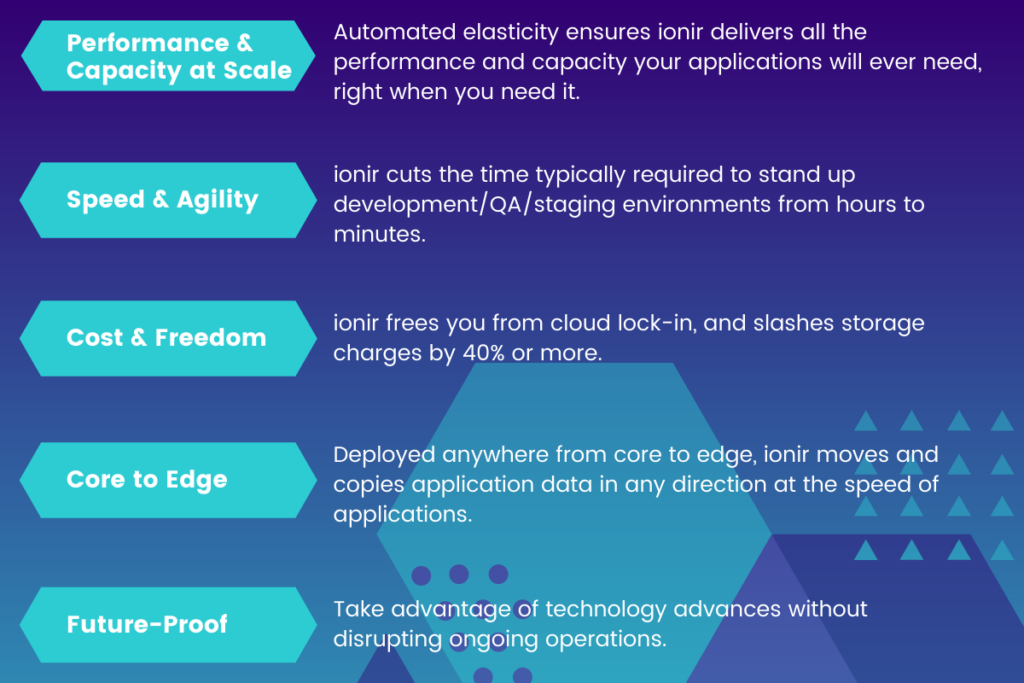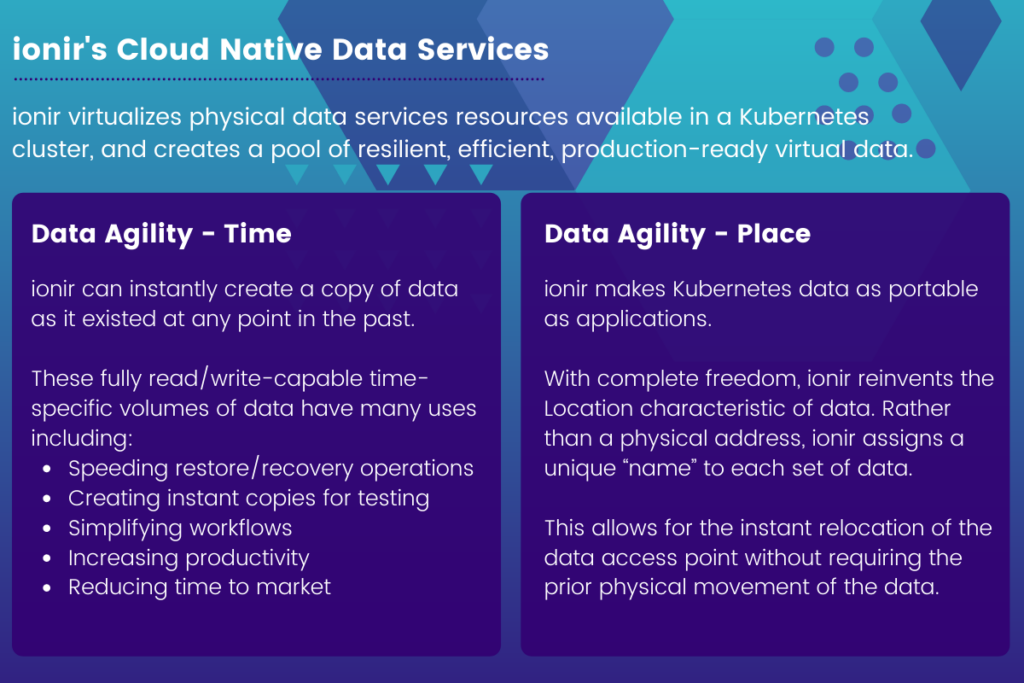20 Jan Top 5 Reasons DevOps Professionals are Running Data on Kubernetes
According to RedHat’s Kubernetes adoption, security, and market trends report 2021, the adoption of Kubernetes (K8s) is widespread. In fact, 88% of survey respondents report currently running data on Kubernetes and 74% of respondents report leveraging K8s in production environments. Are we surprised? Not the slightest.
DevOps professionals spanning all industries are running data on Kubernetes for good reason. From data management and persistence to data mobility and restoration, running data on Kubernetes enables DevOps professionals — developers, operations managers, and MSPs — to drive efficiencies throughout production, testing, and deployment environments. In this article, we’re diving into the top five reasons DevOps professionals are leveraging K8s.
1. There’s Only One Simplified Stack to Rule All Operations
Kubernetes enables organizations to simplify operations by having all of their stateless and stateful workflows in one stack and/or platform. When organizations need to consistently add new technologies to support their expanding data, their operations become increasingly complex.
However, Kubernetes data services platforms are orchestrated by K8s to serve, store, and manage all your K8s application data spanning all types of infrastructure to rapidly scale with your workload. With automated elasticity, K8s platforms like ionir deliver all the performance and capacity your applications will ever need, right when you need it.
2. Running Data on Kubernetes Delivers Built-In Features
Running data on Kubernetes unlocks key features that accelerate the time to deployment and boosts DevOps performance. Built-in features DevOps professionals can expect to gain when running data on Kubernetes include:
- Enhanced expandability to dynamically adapt to any workload
- Increased scalability to take on workloads with near infinite capacity and performance
- Avoiding vendor lock-in with the ability to host data in any cloud environment(s)
Data services platforms for K8s like ionir enriches the features of Kubernetes. In the graphic below, we highlight the exclusive features ionir amplifies in K8s environments.

3. K8s Offers Enhanced Data Mobility and Agility
One of the most critical features of running data in Kubernetes is enhanced data agility. K8s empowers DevOps professionals to rapidly move data in space and time. And with the right technology supporting the K8s infrastructure, DevOps professionals can experience:
- The ability to access and relocate data in 40 seconds or less
- Eliminate 99% of wasted data wait time
- Reduce up to 40 hours in a single CI/CD deployment
- Up to a 500x acceleration of deployments through the CI/CD pipeline
To gain a deeper understanding as to how K8s increases data agility, check out the unique functionalities of ionir’s data services of time and place in the graphic below.

4. Running Data on Kubernetes Ensures Security and Compliance
RedHat survey respondents report that in 2021, 94% of them experienced at least one security incident in their K8s environments. ionir’s Data Services Platform for Kubernetes improves data security by providing an immutable and yet fluid dataset — impenetrable by attackers, resilient in the face of accidents, errors, deletion, and overwrite.
With a K8s data services platform, any risk associated with running data on Kubernetes is mitigated with the ability to:
- Instantly restore data at any point in time with one second granularity
- Recover data that has been affected by corruption or loss to its most ideal state
Download our infographic for a closer look at how ionir has been designed to keep your data secure throughout all stages of the pipeline to achieve DevSecOps.
5. K8s Lowers the Costs of Infrastructure
Running data on Kubernetes lowers cost through innovative technology, sure. But K8s also enables citizen developers to manage otherwise complex workloads. Through data management automation and streamlined workflows, DevOps professionals can spend their time on value-adding activities rather than on time-consuming administrative chores. Now your most valuable and skilled workers can focus on your most critical tasks while the K8s automation handles:
- Scheduling and service discovery
- Monitoring of container performance and availability
- Container scaling
- Load balancing
- Application maintenance
- The rollout of updates
Final Thoughts
Running data on Kubernetes elicits powerful efficiencies that instantly give DevOps organizations a major competitive advantage. As more and more organizations adopt K8s, it’s essential to stay one step ahead of the competition by leveraging the right tools and technology to support your K8s infrastructure. With ionir, you can increase your productivity, add value to the business quicker, and outpace your competition.
Take ionir for a test drive. Start your free trial today.






